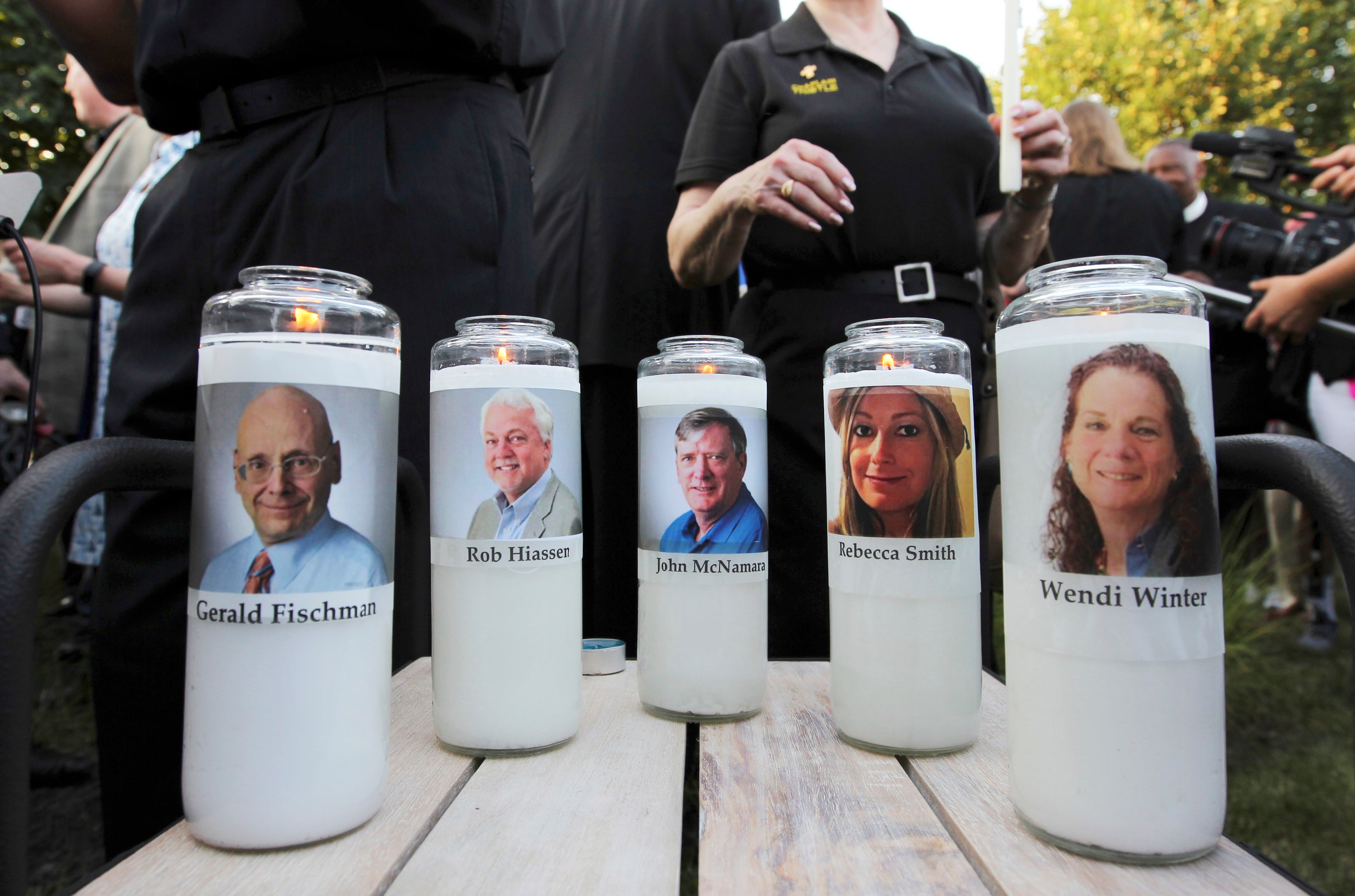Survivors of Maryland newspaper attack testify at gunman’s trial
Survivors of a mass shooting at a Maryland newspaper have described the terror of hiding for their lives under desks during testimony at the gunman’s trial to determine whether he is criminally responsible due to insanity

Your support helps us to tell the story
From reproductive rights to climate change to Big Tech, The Independent is on the ground when the story is developing. Whether it's investigating the financials of Elon Musk's pro-Trump PAC or producing our latest documentary, 'The A Word', which shines a light on the American women fighting for reproductive rights, we know how important it is to parse out the facts from the messaging.
At such a critical moment in US history, we need reporters on the ground. Your donation allows us to keep sending journalists to speak to both sides of the story.
The Independent is trusted by Americans across the entire political spectrum. And unlike many other quality news outlets, we choose not to lock Americans out of our reporting and analysis with paywalls. We believe quality journalism should be available to everyone, paid for by those who can afford it.
Your support makes all the difference.Survivors of a mass shooting at a Maryland newspaper described the terror of hiding for their lives under desks in their newsroom during testimony Friday at the gunman's trial to determine whether he is criminally responsible due to insanity.
The sight of a shot colleague, the near miss of a shotgun blast, the passing flashlight at the end of the gunman's weapon and the sounds of shells reloading were part of their accounts of an attack that lasted only minutes but left five dead.
Six people who were inside the Capital Gazette newsroom during the 2018 shooting were among the first called by prosecutors, who are trying to prove to a jury that Jarrod Ramos understood the criminality of his actions and was not insane at the time of the long-planned attack.
“I was waiting to die, and so I was praying,” said Selene San Felice, who was a reporter at the paper.
She recalled watching her colleague John McNamara get hit by a shotgun blast while she was hiding under a desk with intern Anthony Messenger.
“Once John got shot, I thought we were going to die,” Messenger testified.
Paul Gillespie, a photographer, said he heard shotgun pellets breeze by after Ramos fired at him, just before he ran out of the newsroom to safety.
Janel Cooley, an advertising sales representative, testified to hearing a loud explosion as Ramos blasted through the entrance, shaking the whole office.
Cooley testified to seeing Wendi Winters charge Ramos with a trash can in one hand and a recycling bin in the other before he shot her and kept moving through the newsroom.
“He was walking very purposefully, very methodically,” Cooley said.
Rachael Pacella, a reporter at the newspaper, described hiding under her desk at first, but as the gunshots moved closer she decided to run out a back door — which Ramos had blocked earlier with a device to trap employees inside. She tripped, banged her head on a door and hid between file cabinets, where she could see the flashlight from Ramos’ shotgun just feet away as he passed.
Phil Davis, who was a reporter at the paper, described hearing Ramos reload near where he hid under a desk.
McNamara, Winters, Rebecca Smith, Gerald Fischman and Rob Hiaasen died in the June 28, 2018 shooting.
Ramos already pleaded guilty to all 23 counts against him in 2019, but he has pleaded not criminally responsible due to his mental health. The defense, which went first in presenting its case, has the burden of proof by a “preponderance of the evidence.” That means defense attorneys are trying to show that it’s more likely than not that Ramos isn’t criminally responsible.
Defense attorneys argue Ramos suffered from a paranoid delusion in which the newspaper and the courts conspired to block his efforts to restore his reputation after the publication of a 2011 article about him pleading guilty to a harassment charge against a former highs school classmate. His 2012 lawsuit, which alleged that the paper defamed him, was dismissed as groundless. His appeals failed.
Anne Arundel County State's Attorney Anne Colt Leitess said in her opening statement on Thursday that while Ramos has personality disorders like narcissism, he does not have serious mental illness that qualifies him to be found not criminally responsible for five murders. She contends Ramos attacked the paper out of revenge for the article.
If Ramos were found not criminally responsible, he would be committed to a maximum-security psychiatric hospital instead of prison.